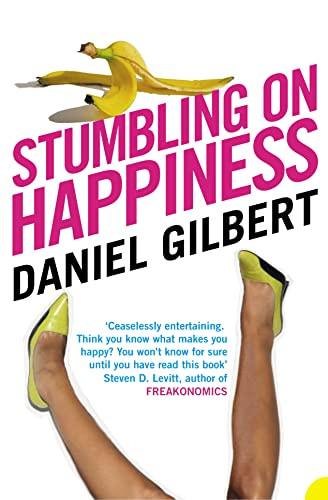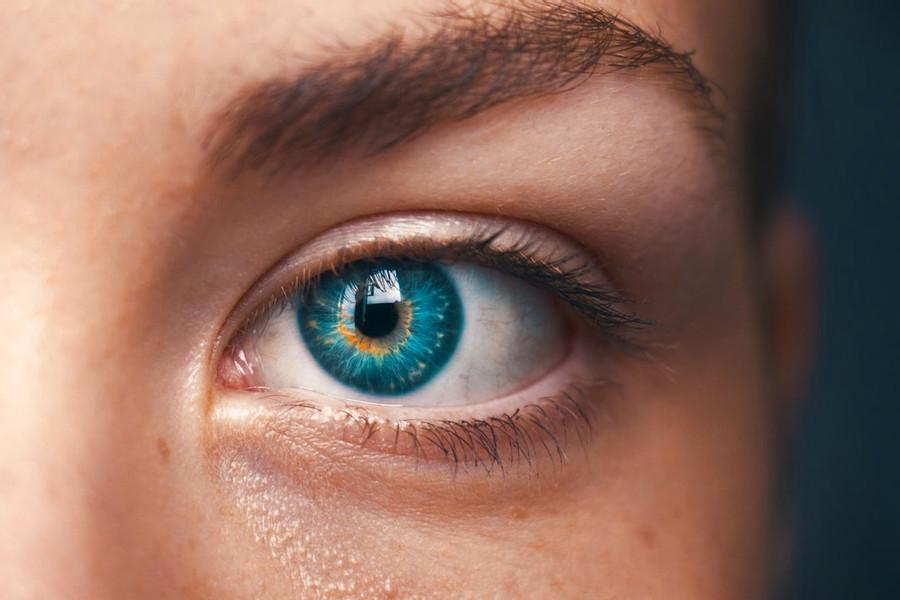Prince Rahul's Key Ideas from Stumbling on Happiness
by Daniel Gilbert
Ideas, facts & insights covering these topics:
16 ideas
·7.44K reads
34
2
Explore the World's Best Ideas
Join today and uncover 100+ curated journeys from 50+ topics. Unlock access to our mobile app with extensive features.
The Joy Of Next
- The greatest achievement of the human brain is its ability to imagine objects and episodes that do not exist in the realm of the real, and it is this ability that allows us to think about the future.
- Our brains were made for nexting, and that’s just what they’ll do.
- Happiness is a word that we use to indicate an experience and not the actions that give rise to it.
47
836 reads
“Perceptions are portraits, not photographs, and their form reveals the artist’s hand every bit as much as it reflects the things portrayed.”
DANIEL GILBERT
46
752 reads
First Shortcoming Of Imagination
“Imagination’s tendency to fill in and leave out without telling us.”
- No one can imagine every feature and consequence of a future event, hence we must consider some and fail to consider others. The problem is that the features and consequences we fail to consider are often quite important.
- Our experience is compressed as a summary phrase (“Dinner was disappointing”) or a small set of key features (tough steak, corked wine, snotty waiter) in memory.
40
599 reads
Second Shortcoming Of Imagination
“Imagination’s tendency to project the present onto the future.”
- When imagination paints a picture of the future, many of the details are necessarily missing, and imagination solves this problem by filling in the gaps with details that it borrows from the present.
43
516 reads
Third Shortcoming Of Imagination
“Imagination’s failure to recognize that things will look different once they happen—in particular, that bad things will look a whole lot better.”
- When we imagine losing a job, for instance, we imagine the painful experience (“The boss will march into my office, shut the door behind him . . .”) without also imagining how our psychological immune systems will transform its meaning (“I’ll come to realize that this was an opportunity to quit retail sales and follow my true calling as a sculptor”).
41
449 reads
“The truth is, bad things don’t affect us as profoundly as we expect them to. That’s true of good things, too. We adapt very quickly to either.
DANIEL GILBERT
53
563 reads
“Your mistake was not in imagining things you could not know—that is, after all, what imagination is for. Rather, your mistake was in unthinkingly treating what you imagined as though it were an accurate representation of the facts. You are a very fine person, I’m sure. But you are a very bad wizard.”
DANIEL GILBERT
46
447 reads
“The fact that the least likely experience is often the most likely memory can wreak havoc with our ability to predict future experiences.”
DANIEL GILBERT
42
425 reads
Next To Nothing
Among life’s cruelest truths is this one: “Wonderful things are especially wonderful the first time they happen, but their wonderfulness wanes with repetition.”
- One way to beat habituation is to increase the variety of one’s experiences (“Hey, honey, I have a kinky idea—let’s watch the sun set from the kitchen this time”).
- Another way to beat habituation is to increase the amount of time that separates repetitions of the experience.
44
412 reads
“If we were to experience the world exactly as it is, we’d be too depressed to get out of bed in the morning, but if we were to experience the world exactly as we want it to be, we’d be too deluded to find our slippers. We may see the world through rose-colored glasses, but rose-colored glasses are neither opaque nor clear.”
DANIEL GILBERT
41
382 reads
Challenging Facts
- People tend to see what they want to see.
- By controlling the sample of information to which they were exposed, these people indirectly controlled the conclusions they would draw.
- To ensure that our views are credible, our brain accepts what our eye sees. To ensure that our views are positive, our eye looks for what our brain wants. The conspiracy between these two servants allows us to live at the fulcrum of stark reality and comforting illusion.
43
370 reads
“For there is nothing either good or bad, but thinking makes it so.”
SHAKESPEARE, HAMLET PRINCE OF DENMARK
48
409 reads
Twisting Fate
- Researchers have discovered that when people find it easy to imagine an event, they overestimate the likelihood that it will actually occur.
- Because most of us get so much more practice imagining good than bad events, we tend to overestimate the likelihood that good events will actually happen to us, which leads us to be unrealistically optimistic about our futures.
- The key to happiness, fulfillment, and enlightenment, is to stop thinking so much about the future.
44
359 reads
“Instead of remembering our past experience in order to simulate our future experience, perhaps we should simply ask other people to introspect on their inner states. Perhaps we should give up on remembering and imagining entirely and use other people as surrogates for our future selves.”
DANIEL GILBERT
41
348 reads
“ One cannot divine nor forecast the conditions that will make happiness; one only stumbles upon them by chance. “
DANIEL GILBERT
43
371 reads
IDEAS CURATED BY
The more one seeks to rise into height and light, the more vigorously do ones roots struggle earthward, downward, into the dark, the deep — into evil.
CURATOR'S NOTE
Despite the third word of the title, this is not an instruction manual that will tell you anything useful about how to be happy. Instead, this is a book that describes what science has to tell us about how and how well the human brain can imagine its own future, and about how and how well it can predict which of those futures it will most enjoy….
“
Curious about different takes? Check out our Stumbling on Happiness Summary book page to explore multiple unique summaries written by Deepstash users.
Different Perspectives Curated by Others from Stumbling on Happiness
Curious about different takes? Check out our book page to explore multiple unique summaries written by Deepstash curators:
3 ideas
11 ideas
Matthew Clark's Key Ideas from Stumbling on Happiness
Daniel Gilbert
1 idea
Mojesh Marella's Key Ideas from Stumbling on Happiness
Daniel Gilbert
Discover Key Ideas from Books on Similar Topics
20 ideas
Predictive Analytics
Eric Siegel
6 ideas
The Mountain Is You
Brianna Wiest
10 ideas
The Mountain Is You
Brianna Wiest
Read & Learn
20x Faster
without
deepstash
with
deepstash
with
deepstash
Personalized microlearning
—
100+ Learning Journeys
—
Access to 200,000+ ideas
—
Access to the mobile app
—
Unlimited idea saving
—
—
Unlimited history
—
—
Unlimited listening to ideas
—
—
Downloading & offline access
—
—
Supercharge your mind with one idea per day
Enter your email and spend 1 minute every day to learn something new.
I agree to receive email updates
















